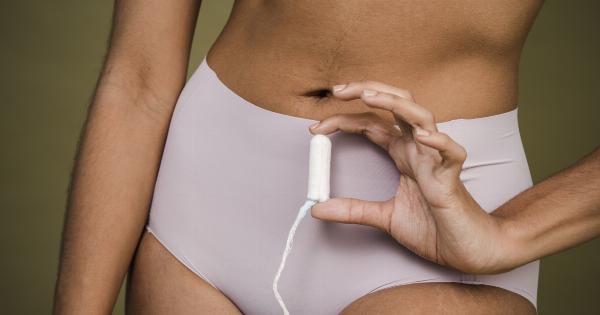When it comes to trying to conceive, couples often wonder what factors may affect their chances of getting pregnant. One question that some may have is whether or not wearing underwear during sex can impact their fertility.
In this article, we’ll take a closer look at this issue and explore whether or not there is any truth to this rumor.
The Importance of Sperm Count and Motility
In order for pregnancy to occur, sperm must successfully fertilize a female egg. This means that the sperm must be present in sufficient quantity and have the ability to move through the vaginal canal and into the cervix.
The quality and quantity of the sperm is known as sperm count and motility, respectively.
Sperm count refers to the number of sperm present in a given sample of semen. The World Health Organization defines a healthy sperm count as at least 15 million per milliliter of semen. Motility refers to the ability of the sperm to move effectively.
Healthy sperm should be able to swim forward in a straight line and be able to move quickly.
Does Wearing Underwear Affect Sperm Count and Motility?
There is some speculation that wearing tight underwear or underwear made of certain materials can negatively impact sperm count and motility. The theory is that tight underwear can cause the testicles to overheat, which can damage sperm cells.
Additionally, certain fabrics may not allow for proper ventilation which can also increase the temperature of the testicles and decrease sperm quality.
However, the evidence supporting these claims is conflicting. Some studies have found that wearing tight underwear can indeed decrease sperm count and motility while others have found no significant difference.
Similarly, some studies have shown a link between certain fabric types and decreased sperm quality while others have found no association.
Other Factors That Can Impact Fertility
While the link between underwear choice and fertility is inconclusive, there are other factors that are known to impact a couple’s chances of conceiving. Some of these include:.
- Age: As a woman gets older, her fertility decreases. This decline typically starts around age 32 and becomes more significant after age 37.
- Timing: In order for pregnancy to occur, a woman must be ovulating. This means that timing intercourse around ovulation is key.
- Health: Both partners should be in good health in order to maximize fertility. This includes maintaining a healthy weight, getting enough exercise, and avoiding drugs and alcohol.
- Medical Conditions: Certain medical conditions can impact fertility, including polycystic ovary syndrome (PCOS), endometriosis, and sperm disorders.
Conclusion
While there is some speculation that wearing tight underwear or certain fabric types can negatively impact sperm count and motility, the evidence is inconclusive.
Couples who are trying to conceive should focus on other factors that are more well established in their impact on fertility, including age, timing of intercourse, overall health, and medical conditions.




























